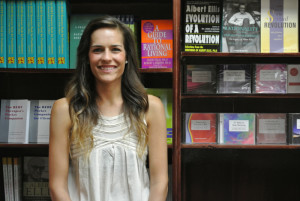by Shannon O’Neill, M.A.
I’ll be the first to admit that when I begin to worry about an approaching event, my thoughts can shift from concern to catastrophe very quickly. But why does this happen? When a problem has the possibility of generating a negative outcome, people easily begin to think the worst. In fact, when individuals think catastrophically, they may even feel and behave as though the worst has already happened even if the outcome is set in the future. If an individual knows that a situation has the potential to go sour, he/she may begin to overlook all other possibilities. True, the worst-case scenario could occur; however, it only represents one of many outcomes.
Let’s imagine a pie chart for example. If there were 4 potential outcomes and 1 possibility had an unfortunate ending, what happens to the other 3 outcomes? Although these possibilities did not disappear, the individual may begin to experience the approaching event from the small 25%, while 75% of the pie still holds neutral or positive outcomes.
I frequently find that what was once a minor obstacle in my life can turn into a massive hurdle due to the unhelpful thinking I engage in.When individuals notice they are becoming anxious due to the thought of a negative outcome, it is suggested that they start looking closer at the thoughts causing the distress. Ways in which to do so are as follows:
1) Take a moment to actually answer the “what if” questions.
2) Would you be able to truly tolerate the outcome if it did occur?
3) Is there any valid reason why this outcome should not occur?
4) Is it more than 100% awful if the outcome occurs?
5) What are the alternative ways of looking at this?
This entry is not aimed to discredit the worst-case scenario because unfortunately there is a chance that it may occur. Nevertheless, it is healthier and more functional to consider all possible outcomes. In sum, rather than making the potential catastrophic event be the entire pie, make sure it’s an equal slice just like every other possible outcome.

